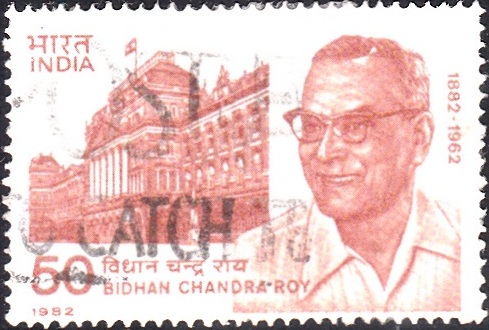
Bidhan Chandra Roy
A commemorative postage stamp on the Birth Centenary of Bharat Ratna Dr. B.C. Roy, 2nd Chief Minister of West Bengal (1948-62) :
Issued on Jul 1, 1982
Issued for : Indian Posts and Telegraphs Department is privileged to issue a commemorative stamp on his birth centenary.
Description of Designs : The stamp, designed by India Security Press, Nasik shows Bidhan Chandra Roy with the Writers’ building in the background. First day cover depicts the personality and R. G. Kar Medical College, Calcutta. Both first day cover and cancellation have been designed by Charanjit Lal.
Type : Stamp, Postal Used
Colour : Burnt Sienna
Denomination : 50 Paise
Overall size : 4.06 X 2.75 cms.
Printing size : 3.70 X 2.40 cms.
Perforation : 14 x 14½
Paper : Unwatermarked P.G. Matt coated stamp paper
Number printed : 20,00,000
Number per issue sheet : 40
Printing process : Photogravure
Printed at : India Security Press
Name : Bidhan Chandra Roy
Born on Jul 1, 1882 at Bankipur, Patna, Bihar, India
Died on Jul 1, 1962 at Kolkata, India
About :
- Dr. Bidhan Chandra Roy passed the Entrance Examination from the Patna Collegiate School in 1897, and First Arts Examination from Patna College in 1899. He passed the Bachelor of Arts Examination with Honours in Mathematics in 1901 after which he joined the Calcutta Medical College. He was admitted to the St. Bartholmew’s Institution in London in 1909 and within about two years he had the distinction of passing both the M.R.C.P. (London) and F.R.C.S. (England) being placed first in the former.
- He held the post of Professor and Head of the Department of Medicine in Carmichael (now R. G. Kar Medical College) and later on was the Emeritus Professor of Medicine and Consulting Physician till the last day of his life. He was also the President of the Medical Education Society of Bengal (Governing Body of R. G. Kar Medical College). He was associated with R. G. Kar Medical College Hospitals, Calcutta for about 44 years.
- Dr. Roy was drawn into politics very early in his life and in 1923 as a young doctor he contested against Sir Surendranath Banerjee as an independent candidate supported by the Swarajya Party of Deshabandhu Chittaranjan Das and dramatically defeated the veteran nationalist leader at the polls. In the Bengal Legislative Council, Bidhan Chandra soon established himself as a prominent parliamentarian. After the death of Chittaranjan Das, Bidhan Chandra was chosen as the Deputy Leader of the Swarajya Party in the Council and he played a leading role in guiding Bengal politics for some time. In 1928, he was elected a member of the All Indian Congress Committee and he came in close personal contact with Mahatma Gandhi, Moti Lal Nehru, Jawahar Lal Nehru and other leaders many of whom, as a physician, he had under his care. He entered the Calcutta Corporation as an Alderman after the third general municipal elections in 1930. During the Civil Disobedience Movement of 1930 he resigned his seat alongwith others in the legislature.
- Bidhan Chandra was Vice Chancellor of the Calcutta University from 1942 to 1944 and was awarded by it the honorary degree of Doctor of Science. In 1947, the Calcutta University sent him to the Bengal Legislative Council, and in 1948 Congress legislators of West Bengal chose him as their leader. It was then that Bidhan Chandra got ample scope to prove his mettle as the Chief Minister of this problem State. His continuous tenure till his death in 1962 (been elected in 1952, 1957 and 1962) constitutes a brilliant chapter in the chequered history of the State. In recognition of his great stature as a constructive leader and a patriot that the Govt. of India awarded him the highest honour of Bharat Ratna in 1961.
- This architect of modern West Bengal died on the 1 July 1962, the date on which he was born.
- The above text is based on material published elsewhere and/or supplied by the sponsors.


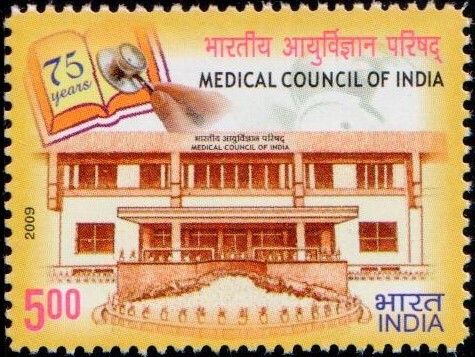

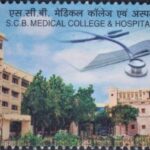
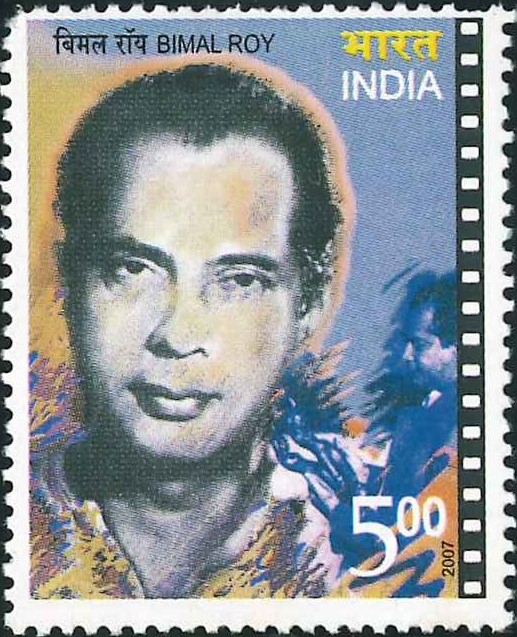
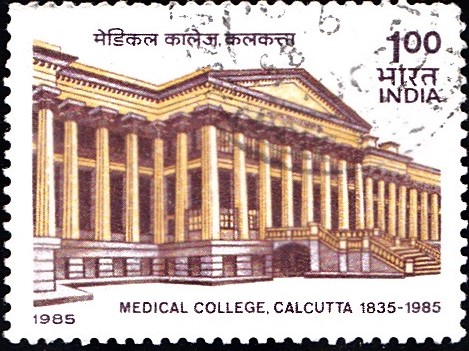
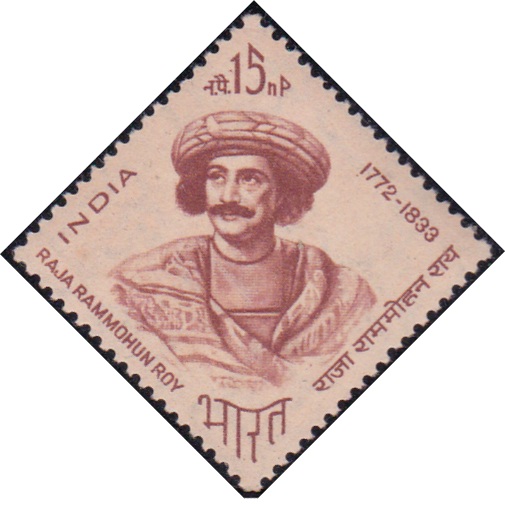
[…] of medical profession in India, viz. Sir N. R. Sircar, Sir U. N. Brahmachari, Sir Kedarnath Das, Dr. B. C. Roy, to name only a […]
[…] Medical Council of India came to be headed by the grand son of Mother India late Dr. Bidhan Chandra Roy as its first Indian President who was not only a very eminent politician, but was also the tallest […]
[…] Dr. B.C. Roy, a friend as well as the physician of the Nehru family, recalled that Kamala Nehru had “a frail constitution but an indomitable spirit. Brought up in luxury and comfort, she faced with cheerfulness the difficulties and discomforts of a public worker in India and she identified herself with the humblest among the sufferers in this land.“ Perhaps the best tribute to Kamala Nehru was paid by Mahatma Gandhi, who said, : “I have not known a truer, braver and more–god–fearing woman.“ […]